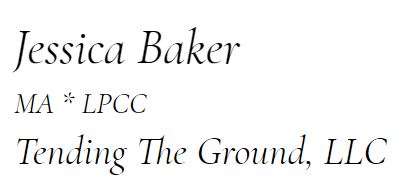It is often believed that we are not enough until we…(insert the thing)…yet, what is more true is that we are already enough, even before this consideration.
We were enough before we were anything, because we can’t be nor become “not enough,” as it is a construct of the mind. The mind decides. In this presumption, the mind seems to tell us that “it” is the one who is in charge of and doles out “enoughness;” that it alone decides who has it, or who needs more, or who has just enough of the enough’ness we so desire. Yet, the mind was never questioned by us about its authority to be the one doling out these measures in the first place. We never considered questioning this in the first place…
How did it somehow escape our awareness of this authority that we gave it? At some point, we sequestered the mind to do this job for us. And then we never took the job back, and said, “okay, I can handle it from here on, thanks.”
So, how do we *remember* to continually question these insane labeling notions of worthiness?
We are not suddenly enough WHEN we become a parent, or spouse, or land the job, or have the thing happen that we always wanted and always believed was missing or required in order to… be enough.
Because… when the thing happens or we become it, then, strangely… there still remains this pokey, gnawing desire for some next thing… that we are sure must happen in order for us to… finally be enough. How does that make sense, when the urgency was so great to have the thing, and then when we got it, we still felt unfulfilled?
When Buddhists talk about standing in our own way, this is what they mean. We have a mind whose mechanism limits us. It only knows how to categorize and measure, assess, approximate, define, and assign meaning. It provides us with understanding, safety, the ability to develop expectations, and predict, for example. While these abilities are incredibly useful, they trap us.
We create a box for ourselves and then gently put ourselves in it and close up the box
And then we find it hard to feel our potential, to create, to dream, to find magic and to offer all those assets to others. When we create predictions for others, we limit them too. (How dare we do it to ourselves and how dare we do it to others as well.)
If we can question the legitimacy of the predictor, assessor, and analyzer… then we can begin to have a conversation with it. This dialogue gently creates a mouse size hole in the box for us to perhaps have a peek out.
What does it look like out there? Hmmm, others are doing things we want to do (but can’t). Others have shiny faces, and shiny ways of being (wow, that looks fun), and others seem to enjoy things we don’t understand, or feel safe, in ways we can’t imagine. Being outside that hole becomes both exciting and terrifying; we want it, and yet we don’t.
As we grow in our abilities to widen our aperture and discover more and more about our likes/dislikes, acceptance/intolerance, difficulties/abilities, and values etc… we come to see if our initial assumptions were correct (often they are not). We become softer with our firm ideas, more open with our notions of right and wrong, and increasingly accommodating or steadfast in the ways that we need.
All the while, the mind is listening, taking note, sounding alarms, telling cautionary tales and being a really great, yet maybe outdated, best friend. So, it talks us out of most things. It sends shivers down our spine, creates denial and avenues to hide, as well as continually tries to stuff materials into that darn hole to make the box safe and secure again. The more we make the hole bigger to climb out, the more it brings in further reinforcements. This back and forth can feel exhausting and confusing.
When we begin to work WITH these deep alliances to provide us with safety at all costs, we start to feel this tyrant and master begin to trust our intuitions, and be impressed with our strength, resilience and capabilities, but we must demonstrate these skills first. If the mind thinks we are recklessly stepping into unknown territory without any scaffolding in place, it will not retreat.
It is with great love, care and devotion toward us that the mind resists in this way.
It is protecting us from potential humiliation and from a risk in not belonging in a way it thinks is still necessary for our survival. And may still be…
Over time, with support, skill, and picking oneself up again and again, the scaffolding is created on the inside – there is wisdom, confidence and stealth. And the journey feels a bit less rocky. We start to see why we did the things we did and we understand how much we needed those anchors of behavior (even unhelpful behavior) to provide familiarity and safety.
We all have the boxes, I know I certainly do – and I still hold onto ones that feel very risky to crawl out of, and yet I stay the course. We are all in this together. When we can feel our humanness in this crazy design, we give ourselves a break… to be learning, risking and growing, at our own pace.


Recent Comments